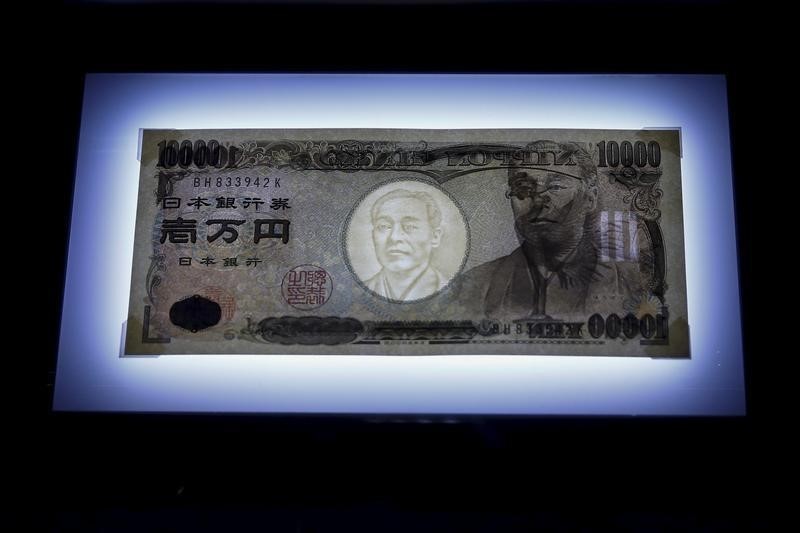By Lisa Twaronite and Ian Chua
TOKYO/SYDNEY (Reuters) - The dollar rose against the yen on Monday as Japan's leader criticised excessively volatile currency markets, and most regional equity markets gained, curbing demand for safe-haven yen.
MSCI's broadest index of Asia-Pacific shares outside Japan added 1.8 percent following a loss of almost 4 percent last week, while Japan's Nikkei stock index was up 5.5 percent.
Chinese shares bucked the uptrend, following their week-long closure for the Lunar New Year holiday during which global stock markets logged steep losses. Chinese trade data also fell short of expectations, with January exports falling 11.2 percent from a year earlier.
Separate data from Japan released earlier in the session showed its economy shrank more than expected in the final quarter of last year as consumer spending and exports slumped. Gross domestic product contracted by an annualised 1.4 percent in October-December, bigger than a market forecast for a 1.2 percent decline.
Against that backdrop, Japanese Prime Minister Shinzo Abe told parliament that "Excessive currency volatility is undesirable," and said Tokyo will take appropriate action in the exchange rate market as needed.
Abe also said he hoped the Group of 20 finance leaders will take appropriate measures to address global economic problems when they meet in Shanghai next week.
The prime minister's comments helped the dollar hit its session high of 113.87 yen. It was last up about 0.5 percent at 113.77, pulling away from last week's 15-month trough of 110.985.
"The dollar was already off its lows but Abe reminded markets that intervention is a possibility," said Kaneo Ogino, director at foreign exchange research firm Global-info Co in Tokyo.
The euro fell about 0.3 percent to $1.1219, having slipped from last week's 3-1/2 month peak of $1.1377. But it gained on the yen, adding 0.2 percent to 127.66 and pulling further away from a 2-1/2 year low of 125.795.
STRONGER YUAN MIDPOINT
The People's Bank of China (PBOC) took the opportunity of the U.S. dollar's recent decline to fix its yuan at its highest in over a month on Monday CNY=SAEC, hoping to deflect speculation about a possible devaluation.
Perhaps in an effort to head off any adverse reaction from Chinese investors, central bank governor Zhou Xiaochuan said there was no basis for the yuan to keep depreciating.
In a well-timed interview with the Chinese financial magazine Caixin published at the weekend, Zhou said China would keep the yuan basically stable versus a basket of currencies while allowing greater volatility against the U.S. dollar.
For now though, investors were still soothed by last month's welcome bounce in U.S. consumer spending, which offered hope the economy was picking up after slowing to a crawl at the end of 2015.
The Australian dollar shrugged off the downbeat China trade data and benefited from improved risk appetite, adding 0.7 percent to $0.7152, while the kiwi added 0.4 percent to $0.6652.

(This version of the story corrects spelling of safe-haven in opening paragraph)